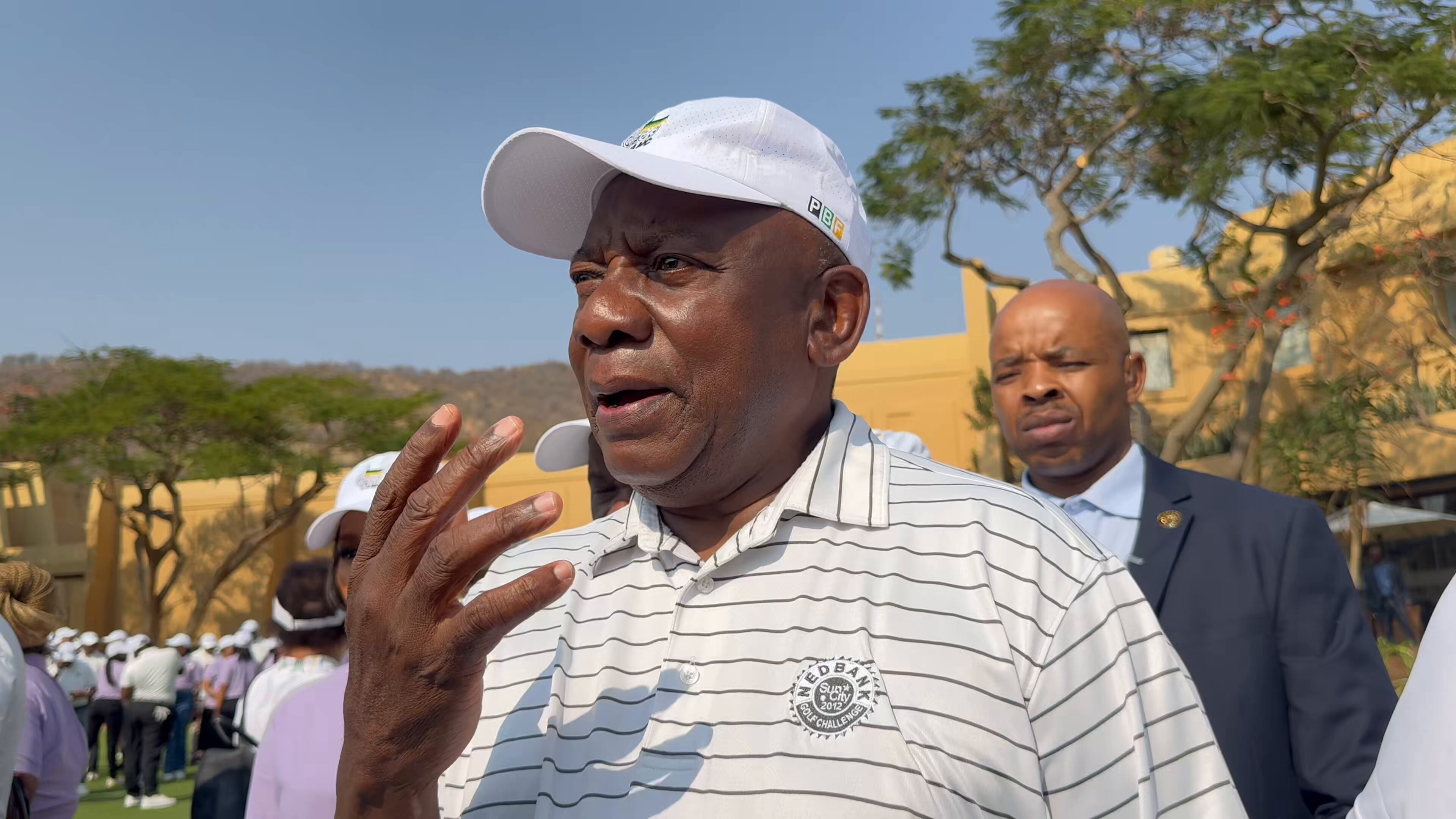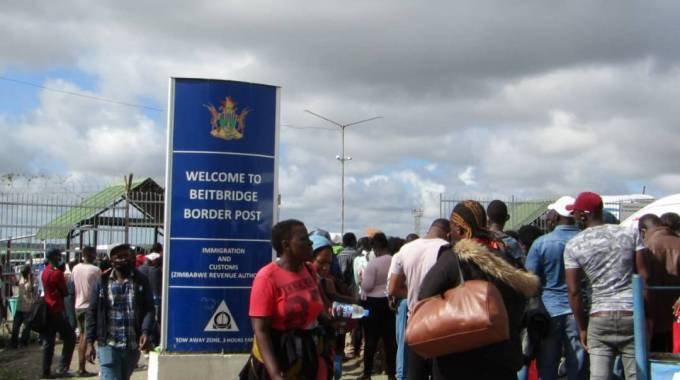Zimbabwe's recent announcement of sweeping reductions to transport‐related fees and levies - halving parking, clamping and towing fines, slashing the cost of vehicle number plates from US$500 to US$50, and repealing a US$23,000 transit fuel duty - is unquestionably good news.
These reforms lower immediate costs for motorists and transport operators, reduce bureaucratic inefficiencies, eliminate overly burdensome fees, and signal an important shift toward a friendlier business climate.
In theory, lower fees translate directly into lower operating costs for truckers, bus operators, private drivers and others whose livelihoods depend on transport.
Over time, this can raise profitability across the value chain, reduce prices for consumers, stimulate investment in logistics and haulage, and enhance Zimbabwe's economic competitiveness.
Such cuts also demonstrate that the government now appears to understand one of the basic truths of taxation: burdensome, fragmented levies can stifle activity more than they raise revenue.
By removing unnecessary charges, eliminating overlapping regulatory costs, and streamlining the flow of funds, government can improve economic efficiency and create space for growth.
And reducing charges like vehicle-plate costs or transit fuel duties can have immediate, visible effects that strengthen public confidence in reform.
Yet while these transport fee reductions are commendable, they raise a deeper question: why, in the first place, does the Zimbabwean government rely so heavily on taxing ordinary citizens — often through regressive and diffuse levies — to fund its operations?
There is strong evidence that Zimbabweans are among the most heavily taxed people in Africa — and perhaps one of the most taxed populations in the world.
As former finance minister Tendai Biti has pointed out, before the rebasing of the economy total taxes approached 30 percent of GDP, roughly double the African average.
Citizens routinely face dozens of separate taxes, levies and fees, from presumptive permits to fuel levies, capital-gains taxes, tolls, customs duties, vehicle registration fees, local authority charges and more.
Surveys suggest that the tax burden is deeply felt by ordinary people.
Afrobarometer data show that more than half of Zimbabweans believe "ordinary people have to pay too much in taxes," far more than feel the rich are overtaxed.
Citizens generally accept the legitimacy of taxation, but many struggle to see how tax revenues benefit them — and mistrust the idea that those revenues are used transparently or efficiently.
In short, Zimbabwe has become overly reliant on extracting revenue directly from individuals and small businesses — often through weakly targeted, regressive and sometimes opaque charges — rather than building sustainable, diversified sources of state revenue.
This raises two fundamental critiques.
First: are all of these fees and levies even necessary?
A government cannot tax its way to prosperity.
When levies on transport, parking or small entrepreneurs are so steep as to throttle economic activity, they can backfire.
High, fragmented fees drive informal economic activity underground, discourage investment, and reduce the tax base in the long run.
If citizens expect onerous fees at every turn — for parking, for moving fuel, for simply registering a vehicle — many will seek to bypass the formal system, reducing overall compliance and driving down actual government income.
Second: the burden falls disproportionately on the poorest and most vulnerable.
Zimbabwe's majority lives at or below the poverty datum line, with limited disposable income.
Every dollar extracted as parking fees, vehicle licensing or import levies is a dollar less for food, school fees or health care.
High tax burdens that fall regressively weaken household resilience, reduce consumption, and slow economic recovery.
When citizens emerge from a month of work with very little left over, there is little incentive to invest, innovate, or grow businesses — and indeed, little capacity to do so.
If the government truly wants to promote economic development, rebuild household welfare, and stimulate business, it needs to shift the fiscal paradigm.
Cutting transport fees is useful — but it is only a first step.
Zimbabwe should be actively seeking alternative revenue streams that are less reliant on squeezing individuals at every turn.
The most obvious lies in the country's natural resource wealth.
Botswana provides a striking example: mineral revenues — especially diamonds — account for roughly one-third of government revenue and about one-quarter of GDP.
In 2023 alone, Botswana collected some 29,558 million pula (around US$2.2 billion) in mineral tax revenue.
Rather than relying heavily on small-scale taxpayer levies, Botswana has parlayed its diamond wealth — managed in part through the Pula Fund sovereign wealth vehicle — into sustained infrastructure spending, a relatively stable fiscal environment, and broad social investment without unduly burdening its ordinary citizens.
Rwanda demonstrates another pathway.
There, tax revenue has grown steadily to around 16.5 percent of GDP in 2022.
In the fiscal year 2023/24, the Rwanda Revenue Authority collected taxes amounting to about 15.1 percent of GDP, covering just over half of the national budget.
Crucially, this has been achieved not by loading dozens of regressive levies onto households, but by formalizing small businesses, improving VAT and income tax collection, mobilizing domestic resources efficiently, and supplementing with targeted public-private partnerships.
The result has been steady investment in healthcare, education, and ICT infrastructure — all without the sense that ordinary people are being taxed into penury.
By contrast, Zimbabwe's revenue picture is both narrower and harsher.
General government revenue has hovered around 15 to 19 percent of GDP in recent years, dipping closer to 14–16 percent in 2023-24.
World Bank data suggest that tax revenue alone has sometimes been as low as 7 percent of GDP.
A significant share of this is collected through fragmented levies, penalties, and user fees that fall heavily on households and small operators, rather than through efficient mobilization of large-scale industrial, trade, or resource rents.
The paradox is stark: despite extracting high visible taxes from its citizens, Zimbabwe still collects less in overall revenue than Botswana or Rwanda, whose systems are both fairer and more sustainable.
Other models could be considered.
Scandinavian countries, for example, do raise high tax revenues — but they do so transparently and progressively, then return that revenue in the form of high-quality social services that citizens can see and trust.
This creates a virtuous circle of compliance and benefit.
Zimbabwe, by contrast, often taxes regressively and opaquely, with little visible return for citizens.
For instance, despite very high toll fees of US$4, most roads still resemble war zones, with potholes and collapsed bridges, leaving motorists to pay exorbitant charges for minimal maintenance — fostering evasion and resentment.
Zimbabwe could also explore smarter user fees tied to actual use, capacity or willingness to pay, rather than blunt levies.
Congestion charges in city centers, for instance, are more efficient and equitable than blanket parking levies, while reinvesting proceeds in public transport or road maintenance.
Revenues could also be expanded by plugging leakages from corruption, smuggling and illicit financial flows — which, by some estimates, drain billions annually from the fiscus, forcing Zimbabweans to be taxed more heavily to make up for revenue lost to corruption.
If these resources were harnessed effectively, the need to pile levies onto struggling citizens would diminish considerably.
There is also a strong economic case for lowering regressive taxes and levies.
When citizens retain more disposable income, households can spend more on goods, services and investments — which means stronger demand, greater business turnover, and more vibrant markets.
Small businesses can reinvest in equipment, staff or inventory rather than simply servicing tax bills.
Entrepreneurs will be more willing to formalize and expand operations if fees are predictable, transparent and not excessively burdensome.
Zimbabwe's recent fee cuts are therefore a welcome sign that the government is beginning to recalibrate.
But if the reforms stop there, the gains will be partial and fragile.
A genuinely sustainable fiscal strategy needs to go further: reduce reliance on regressive levies, strengthen revenue arising from natural resources and exports, formalize and support small enterprises, invest in transparent user fees rather than punitive charges, and ensure that people keep more of what they earn.
When Zimbabweans are taxed less — but taxed more fairly, transparently and in ways that encourage economic activity — the result is a stronger economy, a more resilient citizenry, and a government that can legitimately raise the revenue it needs without killing the goose that lays the golden egg.
- Tendai Ruben Mbofana
 Zimbabwe's fee cuts are welcome
Zimbabwe's fee cuts are welcome  Ramaphosa posts explicit videos on X
Ramaphosa posts explicit videos on X  India dumps US Treasury bills
India dumps US Treasury bills  ZSE and VFEX recover after weak 1st half
ZSE and VFEX recover after weak 1st half  Gold edges up as traders await guidance
Gold edges up as traders await guidance  Fastjet adds early morning Joburg-Harare flight
Fastjet adds early morning Joburg-Harare flight  Young Investment Professional (YIP) Graduate Programme 2019
Young Investment Professional (YIP) Graduate Programme 2019 










 Young Investment Professional (YIP) Graduate Programme 2019
Young Investment Professional (YIP) Graduate Programme 2019
Editor's Pick